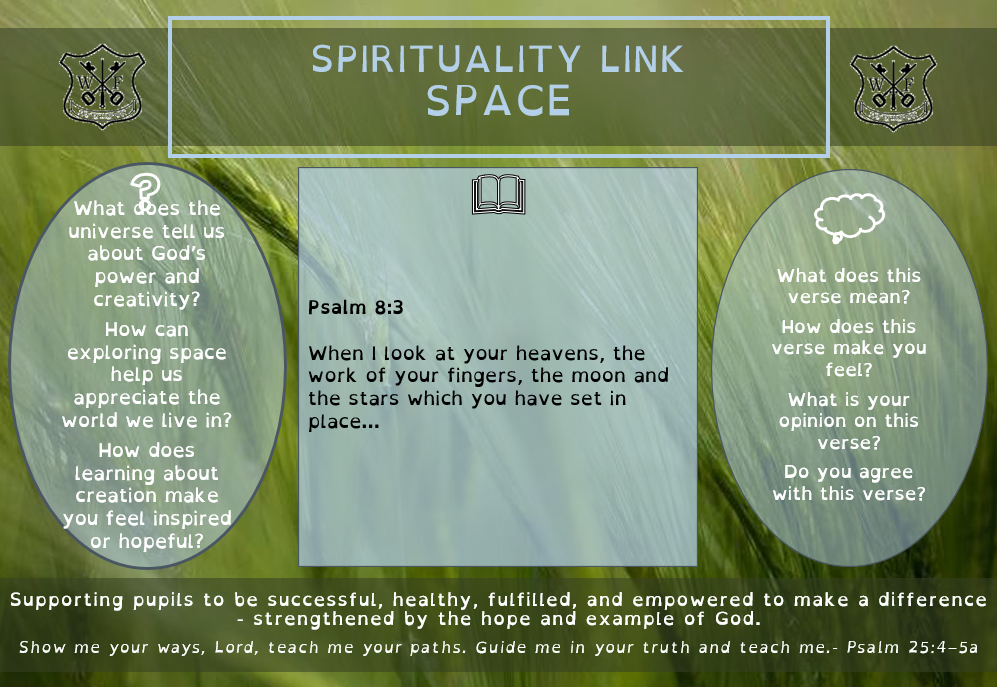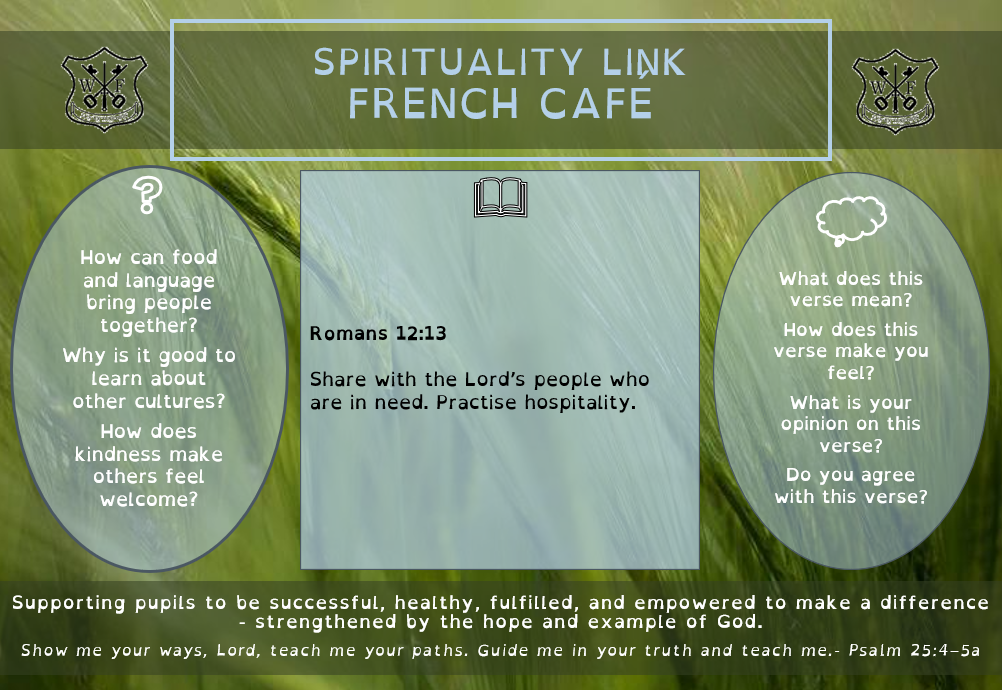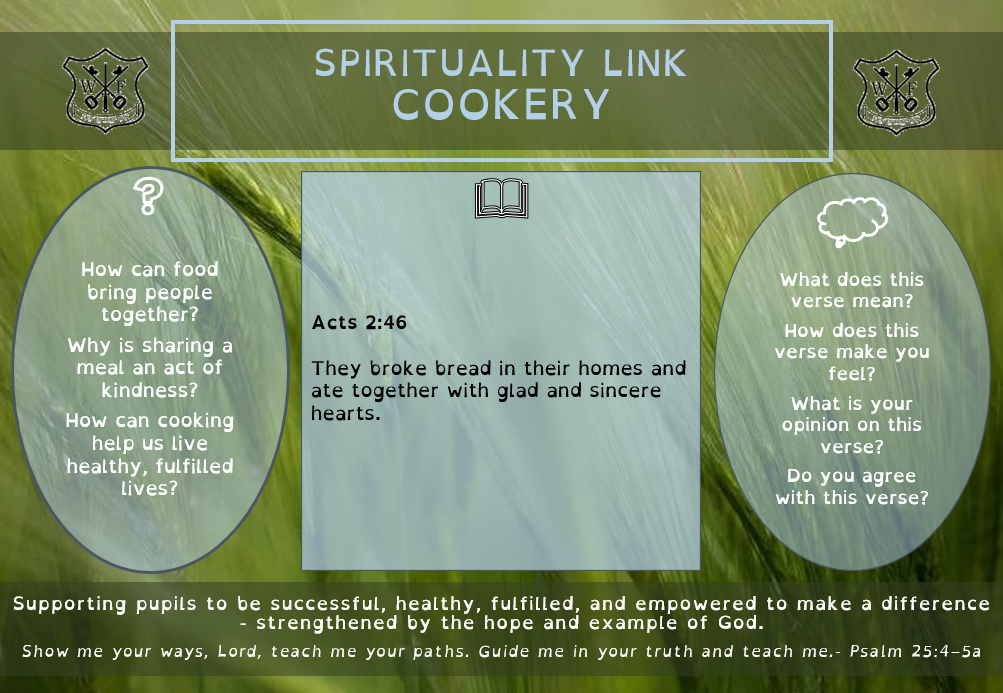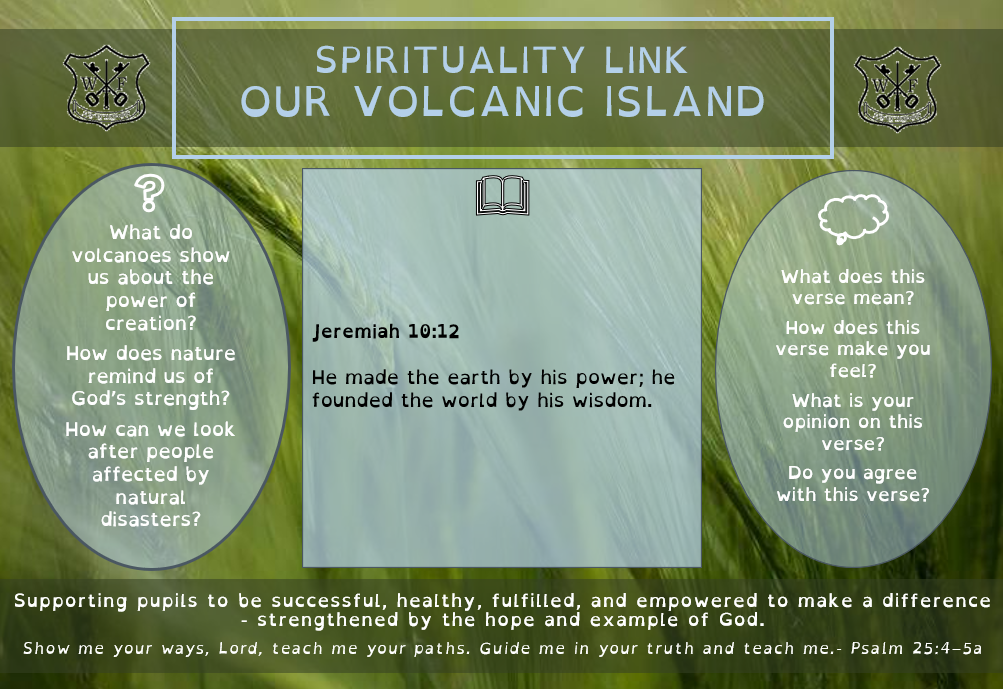
Our Christian vision and understanding of spirituality
Our Christian vision is:
Supporting pupils to be successful, healthy, fulfilled, and empowered to make a difference – strengthened by the hope and example of God. Show me your ways, Lord, teach me your paths. Guide me in your truth and teach me. – Psalm 25:4–5a
It reflects a Christian understanding of God:
Our vision is rooted in the belief that God is our guide, our hope and our example. Psalm 25 reminds us that learning is a journey in which God leads, teaches and strengthens us. We believe that as God guides us in truth, so we are called to guide and nurture others. We see God’s character revealed in the hope He offers, the generosity of His grace, and the example of service shown in Jesus Christ. These qualities shape our actions as a school community. We therefore seek to offer hope to families facing challenge, guidance to pupils as they grow, and generosity in how we treat others.
We recognise that our community experiences high unemployment, poor health and socio-economic deprivation. Education can be a pathway to opportunity, and we aim for pupils to work diligently and purposefully across all areas of school life. Our curriculum philosophy of mantle of the expert motivates such diligence and ensures learning leads to success and self-belief. We aspire for pupils not only to find hope for themselves but to become bearers of hope and compassion for others. Our partnership with Stand By Me and the sponsorship of children in Guacamayal, Colombia, reflect our belief that God’s love calls us to serve beyond our own community.
We have identified 11 key experiences that every pupil will encounter during their time at William Ford – from visiting another country to serving within the local community, representing the school in sport, art or music, and learning to cook a meal. These experiences help pupils live life in all its fullness, echoing God’s desire for His children to flourish and be fulfilled.
It reflects our understanding of spirituality:
Our understanding of spirituality covers the following:
- Consideration of where we have come from, why we are here and where we are going
- Connection with a ‘greater being’ or ‘force’ that cannot be experienced through physical senses or expressed through everyday language
- A deep personal response to experiences that inspire awe, wonder and reflection – whether through exploring the natural world, engaging with ‘big questions’ or encountering beauty, truth and meaning across the curriculum and in life
- Development of pupils’ own faith and beliefs, providing them with opportunities to connect with God, nature and others and consider how this informs the choices they make and the values and principles by which they choose to live
It reflects our approach to spirituality:
Spirituality is woven throughout our curriculum, collective worship and wider life of the school. Each unit of learning begins with a Bible verse and discussion, encouraging pupils to explore what it means, how it makes them feel and whether they agree or disagree. These reflections are revisited mid-unit and again at the end, enabling pupils to recognise how their growing knowledge may have deepened or changed their understanding. This process – evident in our planning proformas and class displays – helps pupils to reflect deeply, articulate opinions and ‘disagree well’, developing respect for differing viewpoints.




It reflects our belief about ourselves and each other:
As precious beings, created by a loving God, we recognise the uniqueness of each child and ensure that they develop the skills they need to flourish academically, physically, mentally and spiritually regardless of their background or individual needs.
It reflects our belief about the world:
We believe the world is God’s creation – beautiful, diverse and full of wonder, yet also marked by challenge and injustice. Spirituality helps our pupils to see the world not only as it is, but as it could be. Through collective worship and across the curriculum, pupils explore themes of creation, justice, peace and stewardship. They reflect on their responsibility to care for the environment, to challenge injustice and to act with hope, generosity and service. By connecting learning to lived experience, pupils are inspired to use their gifts to make a positive difference locally, nationally and globally.
Our Christian vision is lived out:
Our vision and understanding of spirituality are seen daily through purposeful learning, reflection and service. Pupils are encouraged to pause, question and make meaning of what they learn – to connect knowledge with belief, action with reflection. Bible verses that begin each unit, classroom reflection spaces and meaningful dialogue all help spirituality to flow naturally through the curriculum. Pupils learn that success involves more than achievement – it includes being kind, thoughtful, fulfilled and ready to make a difference. In this way, spirituality is not a separate part of school life but the thread that runs through all we do – shaping how we learn, live and grow together in the light of our Christian vision.
